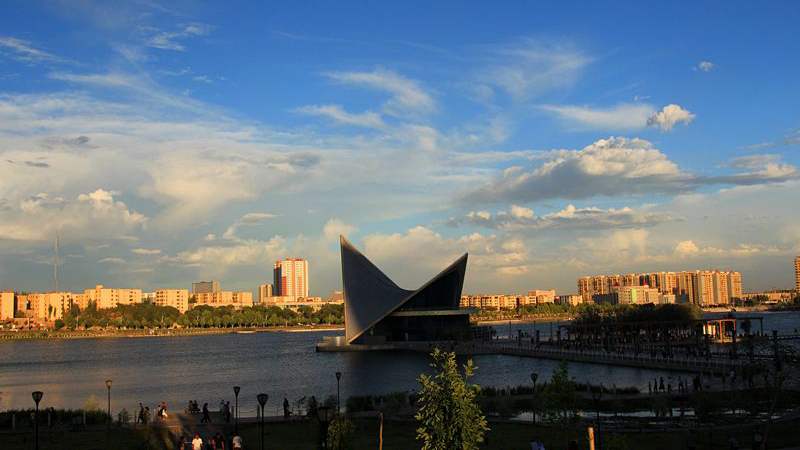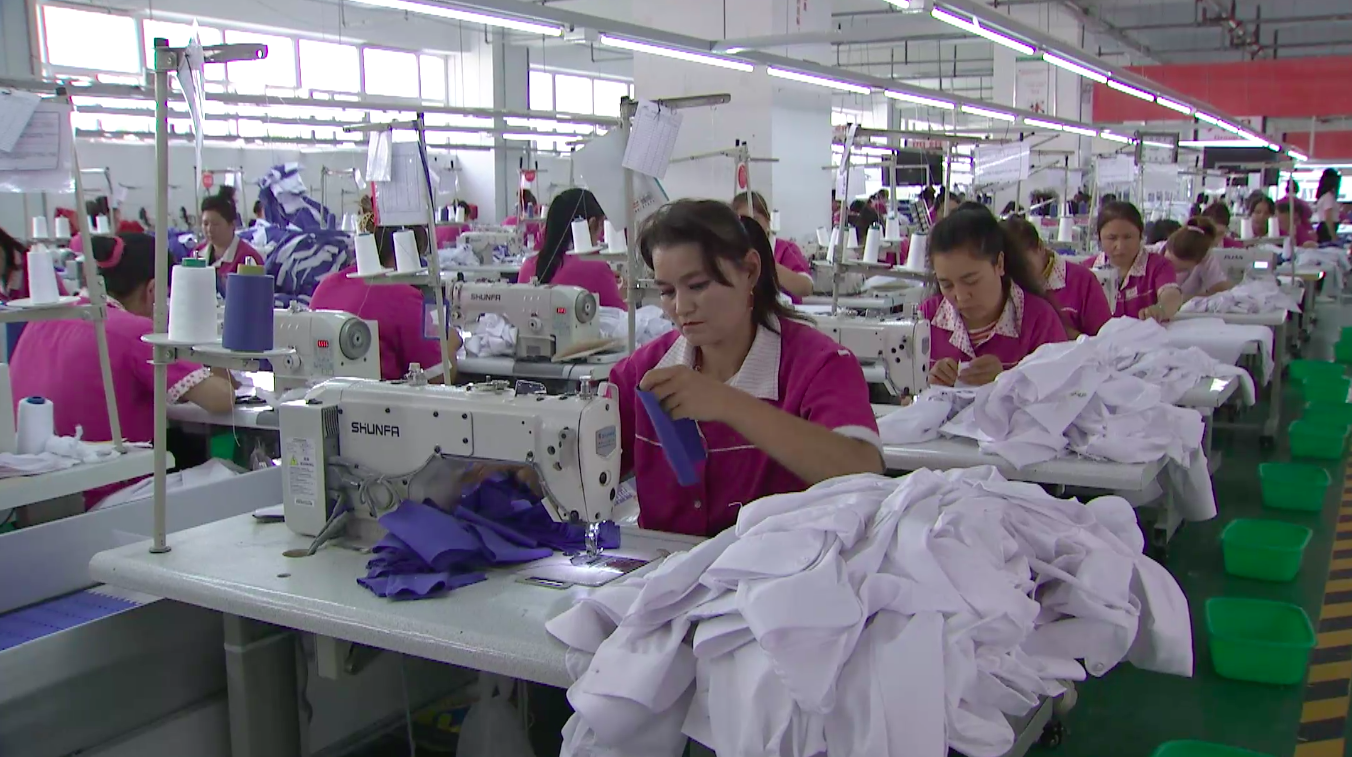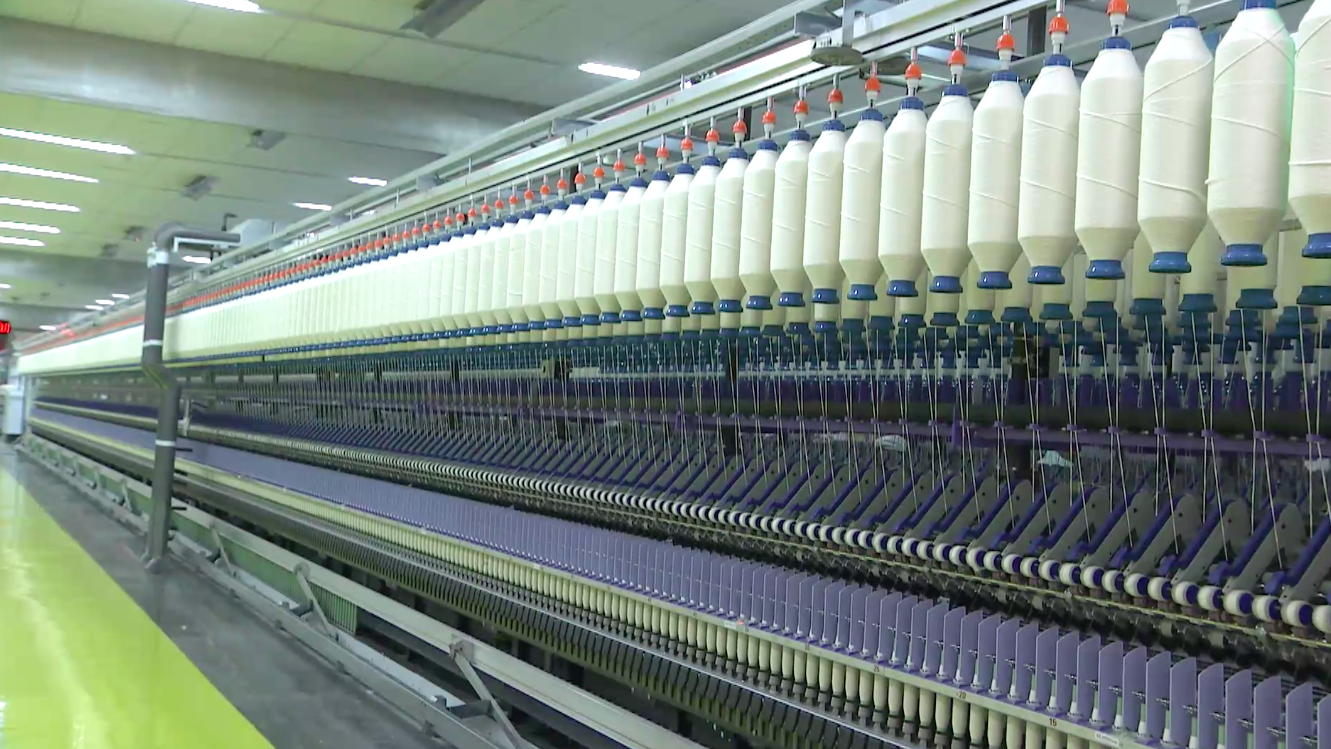

According to statistics from the China Business Industry Research Institute, there are nine national-level Economic and Technological Development Zones and three Comprehensive Bonded Zones in various cities of the Xinjiang Uygur Autonomous Region, serving as important platforms for solving local employment problems, promoting the transformation and upgrading of the industrial structure and opening up to trade cooperation internationally. Recently, CGTN visited Kashgar together with a group of overseas journalists to find out more.
In 2015, the Kashgar Economic and Technological Development Zone (ETDZ) completed its construction of infrastructure, focusing on electromechanical manufacturing, production of household appliances, electronics assembly, and the textile and garment industries. Ongoing development and industrial upgrades are changing living standards for the local people, and Nurgul is a typical example of this phenomenon.
Nurgul Anwar is a group leader in Xinjiang Meiliao Clothing Co., LTD at the ETDZ. She was born in Kashgar, and used to be a housewife. But now, she’s been working at the factory for over three years and has learned lots of different vocational skills, and the company pays her a satisfactory salary that comes with social and medical insurances. She’s pleased about that, Anwar said.

Employees are sewing uniforms at the workshop of Xinjiang Meiliao Clothing Co., LTD in Kashgar, northwest China's Xinjiang Uygur Autonomous Region. /CGTN Photo
Now, the Kashgar Economic and Technological Development Zone has become a logistics base for textiles and clothing in southern Xinjiang, which has greatly eased the local unemployment problem. Li Jun, the Deputy General Manager of Nurgul’s company, pointed out that the company now has about 1,200 employees. About 90 percent of them are Uygur women in Kashgar.
There are many stories like this in the development zone, including the Kashgar Qilu Textile and Garment company. Zhai Mengqiang, the chair of the company, said that at present, 1,600 people are working at his company. They have a high degree of automation and a fully automated cotton textile production workshop, which can provide a favorable working environment and learning opportunities for the employees. In the future, with the new project put into production, it is expected to provide around 3,600 jobs for the local people.

A fully automated cotton textile production workshop in Kashgar, northwest China's Xinjiang Uygur Autonomous Region. /CGTN Photo
Intissar Hallak, a visiting Saudi journalist, is very impressed. She said she’s also engaged in uniform production as a part-time job and hope she can cooperate with the garment company and import products to Saudi Arabia in the future.
And there's a one-stop customs service to help companies trade with other neighboring countries. Bai Can, the deputy director of the Kashgar Comprehensive Bonded Zone pointed out that as an important hub city along the Belt and Road, the Kashgar Comprehensive Bonded Zone plays a major role in establishing logistics and processing centers for Central Asia, South Asia and China. The trade zone can expand economic and trade cooperation among these areas with great convenience in terms of tax revenue and customs effectiveness for enterprises at home and abroad.

Imported products from neighboring countries are showcased at the Kashgar Comprehensive Bonded Zone in northwest China's Xinjiang Uygur Autonomous Region. /CGTN Photo
The official also said the Comprehensive Bonded Zone is now working with Kyrgyzstan and Tajikistan, while it is talking about cooperating with some companies in Pakistan. Trade cooperation with more countries will be carried out in the future.
Mambetalieva Aizhan, a reporter from Kyrgyzstan, said she likes the fact that she can see famous honey exported from her country, which can be sold from here to other parts of China. She believes with more development, the Comprehensive Bonded Zone will promote more economic and trade exchanges between the two countries.
Today, economic and technological development zones and comprehensive bonded zones are like two ends of a bridge, connecting China with other countries.
(Cover: CGTN Photo)

Copyright © 2018 CGTN. Beijing ICP prepared NO.16065310-3
Copyright © 2018 CGTN. Beijing ICP prepared NO.16065310-3